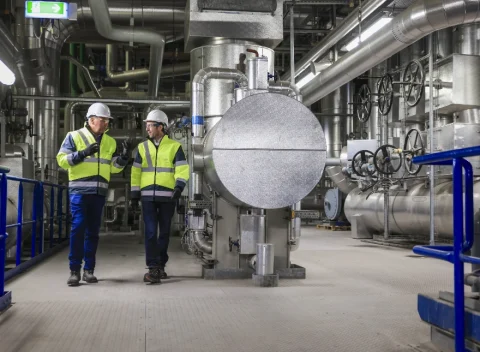At Encyclis, we convert residual waste into renewable energy and recover valuable resources from it. This sustainable waste treatment solution diverts waste from landfill and supports the transition to a circular economy.
We generate baseload electricity and heat, contributing to national energy security, and recycle materials like metals and ash for reuse in industries like construction. Through innovation, including carbon capture technology and hydrogenated vegetable oil, we aim to reduce our carbon footprint and support net-zero targets. We also collaborate with local communities to minimise environmental impact and promote resource recovery, advancing towards a more sustainable future.


